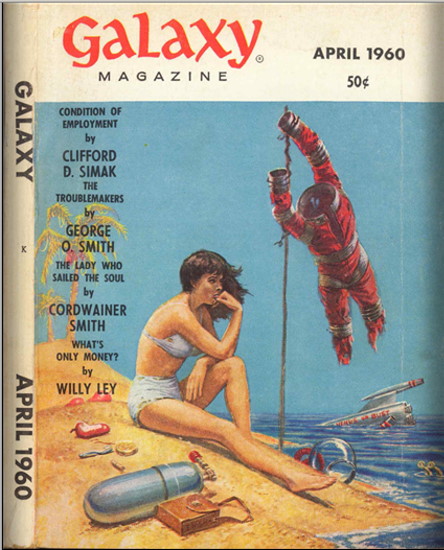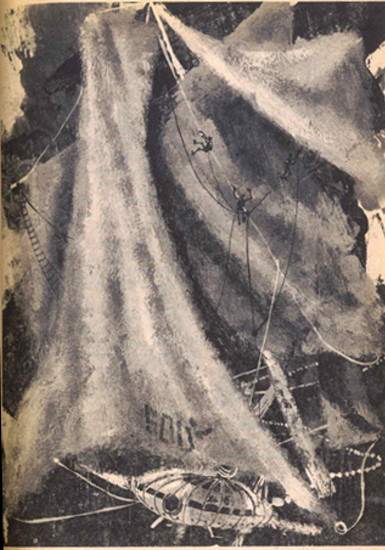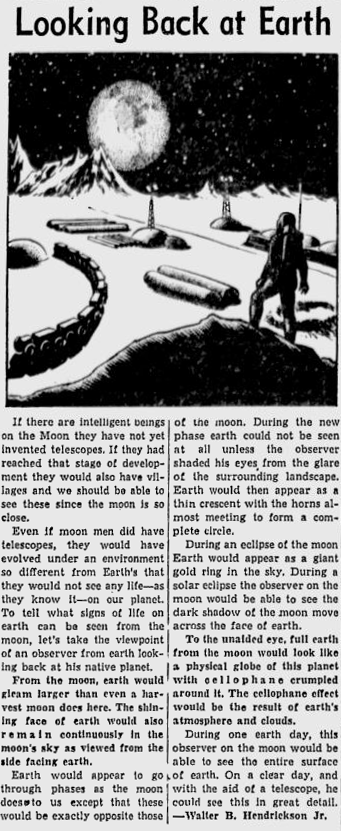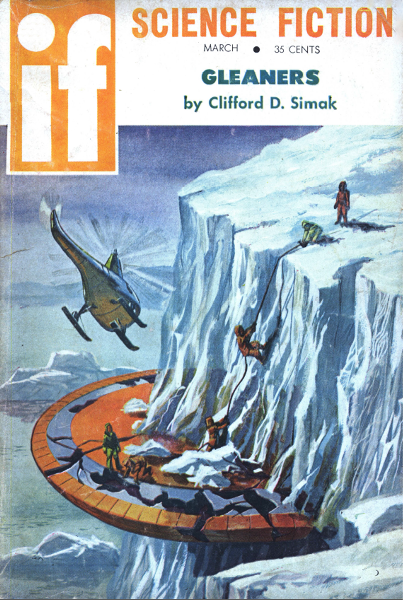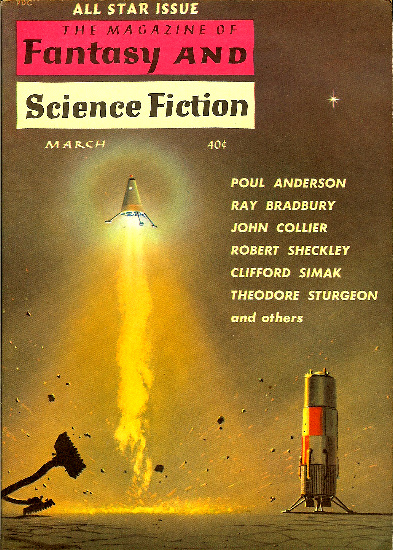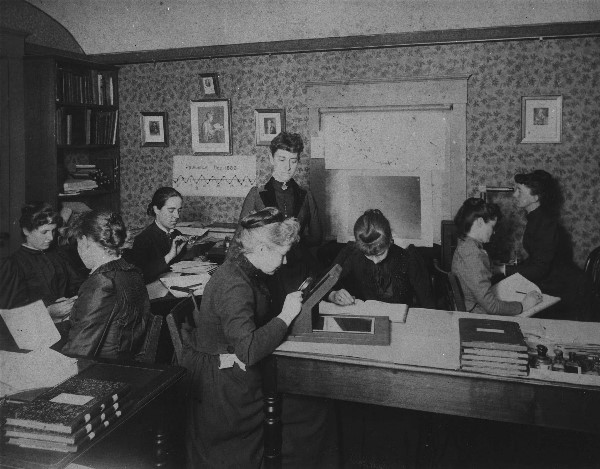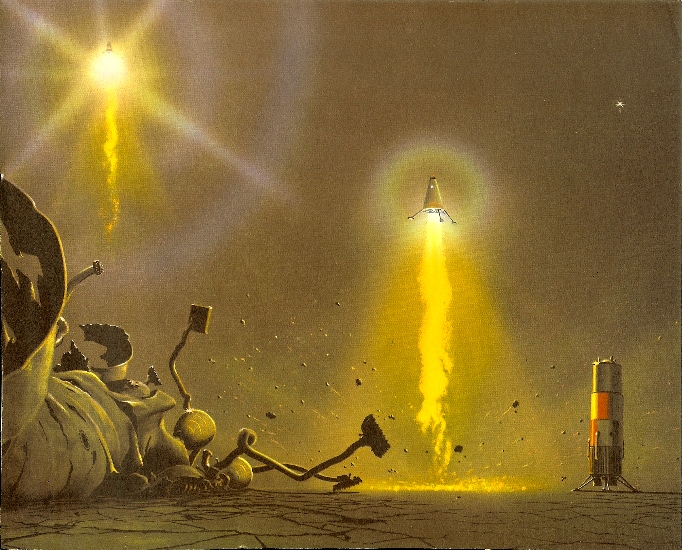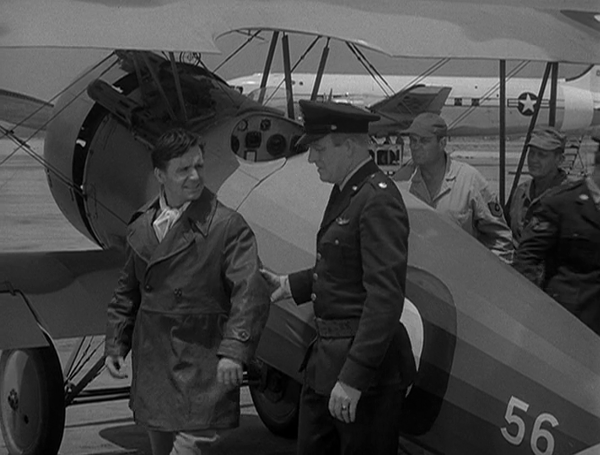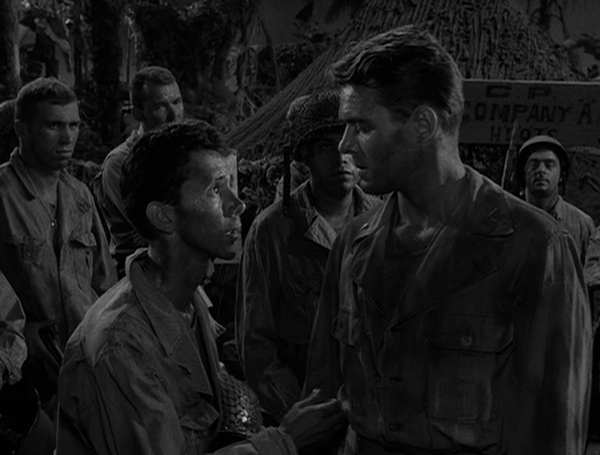
The Space Race headlines were anything but exciting last month, but today's news makes up for February's doldrums in spades.
Last year, there was a great deal of fanfare regarding last August's launch of Explorer 6. This testbed of an orbital spacecraft was developed by Los Angeles based Space Technology Laboratories (STL), the Air Force's pet contractor. Its purpose was to make use of the experiments designed for the marginally successful lunar Pioneer probes (0-2) and also to test a new digital telemetry system that will allow communication with spacecraft over interplanetary distances.
Explorer 6 was a huge success, and it appeared that a Venusian probe utilizing the technologies pioneered and verified by the paddle-wheel satellite would be launched late last year. That launch never materialized, probably due to setbacks in the parallel Atlas-Able luar missions, which will use the same technologies in a larger package to explore the Moon.
Instead, the folks at STL made an interplanetary copy of Explorer 6 for a deep space mission past the orbit of Venus without the possibility of a planetary rendezvous.

Dubbed Pioneer 5, this morning it was successfully launched atop that proven workhorse of prior STL missions, the Thor-Able booster.
Pioneer 5 is now beep-beeping its way through interplanetary space on a journey of unparalleled distance and longevity. While both the Americans and Soviets have launched probes into solar orbit (Pioneer 4 and Luna 1), these were battery-powered ships whose transmissions faded shortly after whizzing past the moon.
Solar-powered Pioneer 5, with its long-range communications abilities, will relay information about the interplanetary medium up to a distance of 25 million miles away. That's 100 times further than the distance from the Earth to the Moon!
Such a long trip can hardly be summed up in a single article, so expect status reports as this intrepid little (100 pound) probe zooms through the vastness between Earth and Venus' orbits. For the first time, we will have an in depth analysis of the radiation and magnetic fields beyond terrestrial boundaries. Moreover, the lessons learned on this mission will be invaluable to future efforts, particularly upcoming flights to Venus and Mars.
Can you tell that I'm excited? I hope you are too!
—
Galactic Journey is now a proud member of a constellation of interesting columns. While you're waiting for me to publish my next article, why not give one of them a read!
(Confused? Click here for an explanation as to what's really going on)
This entry was originally posted at Dreamwidth, where it has comments. Please comment here or there.


